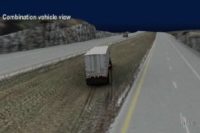Machinist awarded $51,000 after suspension for making cell phone video of machinery testing
OSHA investigators found the company had suspended the employee after he refused to delete video footage of an air compressor test aboard a locomotive. The previous day the employee had deemed the compressor unsafe and unusable, a decision the supervisor overturned.
A few days later, the employer informed management he had sent the video footage to the Federal Railroad Administration.
"Recording safety inspections on locomotives is protected by federal law," said Ken Atha, regional administrator for OSHA in San Francisco. "Workplace protections, such as these, ensure transparency, accountability, and freedom to raise safety concerns in the workplace without fear of retaliation."
OSHA ordered Union Pacific Railroad to pay back wages and punitive damages of $51,000 and reasonable attorney's fees to the worker following the OSHA investigation. OSHA also ordered the company to amend its policy of banning cell phone recordings of work safety activities.
This marks the 11th time in the past four years that OSHA has found Union Pacific Railroad in violation of the whistleblower protection provisions of the Federal Railroad Safety Act. Under the FRSA, an employee of a railroad carrier or a contractor or subcontractor is protected from retaliation for reporting certain safety and security violations.
OSHA enforces the whistleblower provision of more than 20 statutes protecting employees who report violations of various securities, trucking, airline, nuclear, pipeline, environmental, public transportation, workplace safety and health, consumer product safety, health care reform and financial reform laws.
Detailed information on employee whistleblower rights, including fact sheets with information on how to file a complaint with OSHA, is available online at http://www.whistleblowers.gov.
Looking for a reprint of this article?
From high-res PDFs to custom plaques, order your copy today!




